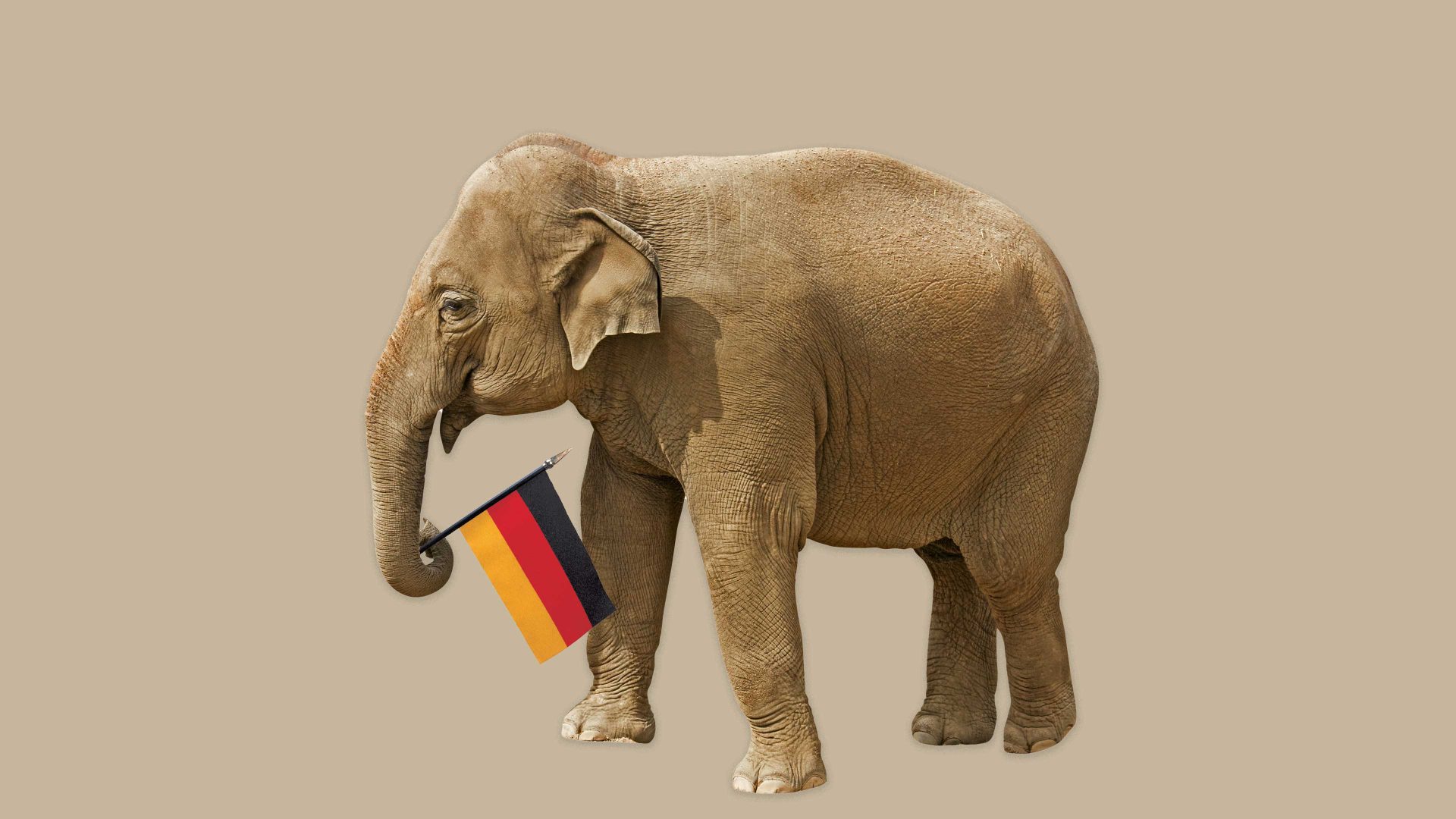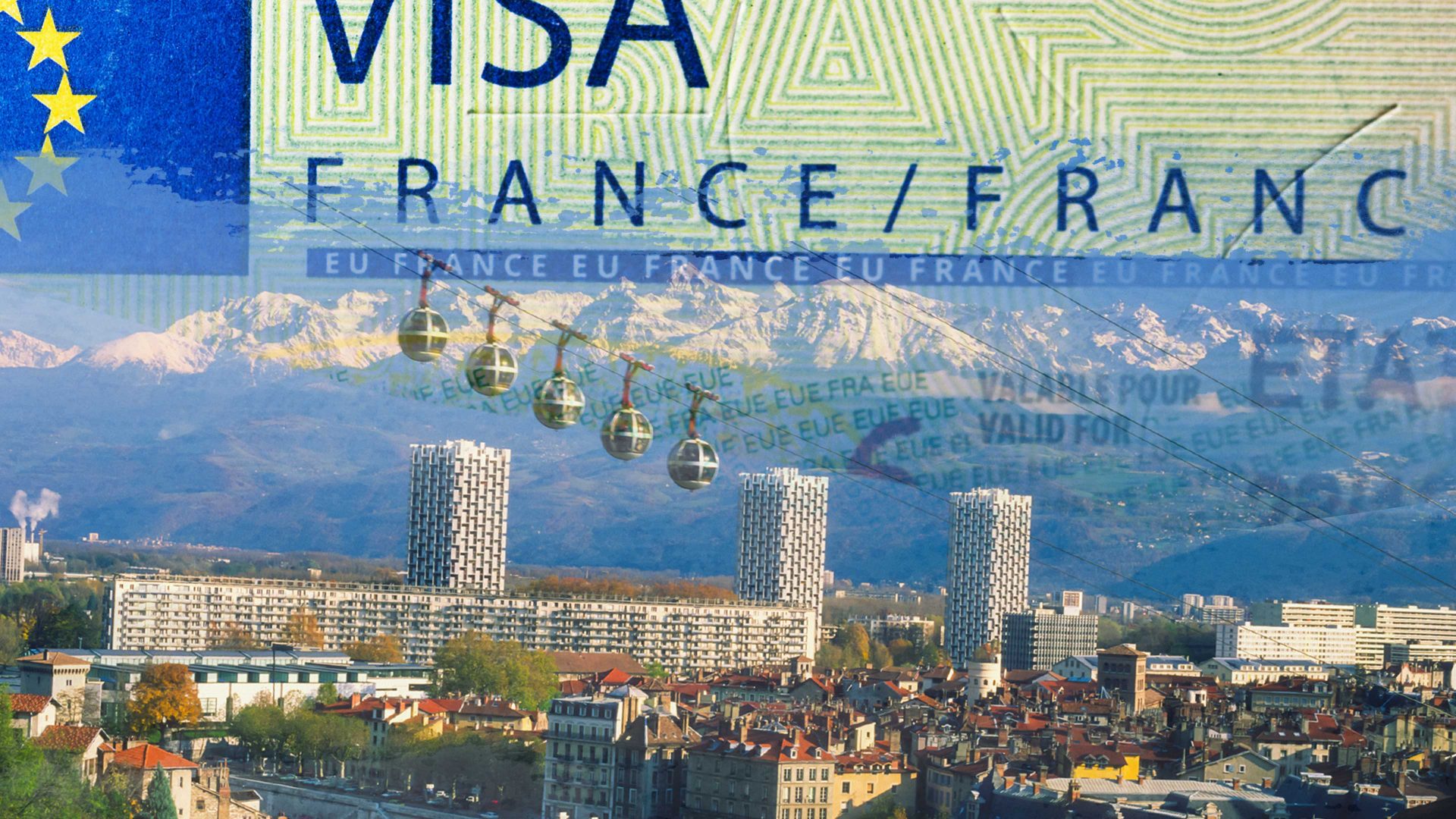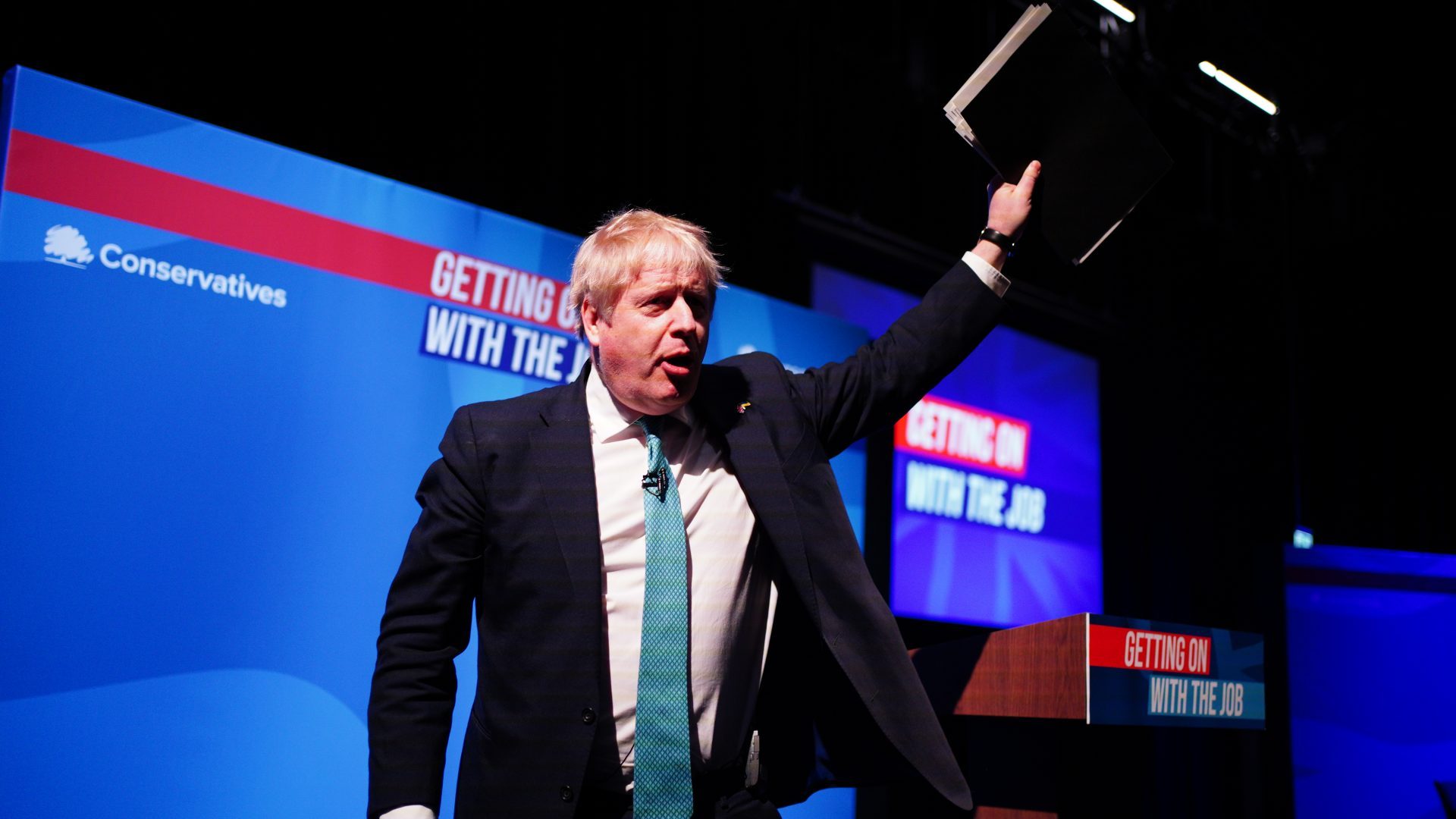It’s been quite some time since a European nation found itself overrun by elephants. We’re talking 218BC, when Hannibal famously used them to lead his Carthaginian army across the Alps against the Roman Republic.
This historical feat is being revisited in Germany these days, because Botswana’s president, Mokgweetsi Masisi, has given us a huge gift: 20,000 elephants, with two conditions – we pick ’em up and then let them roam freely within German wildlife, from the Lüneburg Heath to the Black Forest.
“You should live alongside these animals as you are asking us to do,” Masisi told the tabloid Bild, adding: “We won’t accept a no.”
Lufthansa has already offered to airlift a select few elephants via Dumbo jet. However, bringing in all 20,000 would mean a Hannibal-style military operation. Naturally, during the Easter holiday silly season, the story quickly spread on social and other media, including proposals for a Rüssel-Schlüssel – a trunk quota (Bavaria taking 3,160, tiny Bremen 164) – and the idea to offer Masisi 5,000 highly dispensable civil servants in return.
By the way: should this story sound familiar to you it is because in March, Botswana’s wildlife minister suggested sending 10,000 elephants to Hyde Park.
Obviously, elephant proliferation is less of a danger than the nuclear version, and there’s far more fatal biological warfare. But for several African countries “this isn’t a joke”, as Masisi insisted.
His reaction was triggered by a move from Germany’s Green Party environment minister, Steffi Lemke. She announced she would push for stricter EU legislation on the import of safari trophies, advocating a complete ban like France and Belgium, similar to the UK hunting trophies bill.
Preventing Minnesotan dentists from redecorating their mansions with majestic, stuffed African creatures – who wouldn’t agree? Moreover, most German environmentalists despise hunting.
If you set ideology aside, however, there’s a difference between culling deer to manage numbers and the hunting of foxes (banned in Germany since 1934), making an animal suffer solely for the excitement of horsemen.
Antlers adorning the walls of many German country homes are seen as acceptable; venison is regarded as the most eco-friendly meat. No one in their right mind would have lion loin for dinner, though, or sit on a stool crafted from an elephant leg.
According to a 2021 survey, 85% of Germans are against hunting wild animals in Africa, and 89% oppose the import of trophies.
Then of course, there are always individuals who aren’t entirely sane and pay tens of thousands for a zebra head above the mantelpiece as a safari souvenir. But local officials in Botswana and Namibia argue that this money contributes to local wealth and that their hunt is monitored, ethical and necessary for population control.
A ban would hurt revenues, impede anti-poaching efforts, and impoverish villagers who rely on such tourism and don’t want their crops destroyed or eaten by XXL herds.
It is true that while overall numbers are down to a quarter of the estimated 1.3m in 1979, Botswana’s 130,000 elephants are the largest pachyderm population in Africa. So large that a hunting ban introduced in 2014 was lifted in 2019.
German peasants, who run on a very short fuse anyway, would certainly want their say about grey giants gently trampling asparagus fields. So why not take Botswana’s concerns equally seriously? Forty per cent of its territory is dedicated to wildlife.
According to experts, it is the most democratic country in Africa and fares better on corruption indexes than some EU states. No wonder Masisi accused the Greens of “neo-colonialism”, a critique greeted with broad grins on conservative faces. “It is very simple to sit in Berlin and have an opinion about our affairs,” he remarked. “But we pay the price to preserve these animals for the world – and even for Lemke’s party.”
So if weird, wealthy, white trophy hunters, albeit counterintuitively, truly benefit local infrastructure and wildlife conservation, why the ban?
Germany’s imperialist excursions all but wiped out the local elephant population. The Koloniallexikon from 1920 admitted that “as much ivory as possible has been exported, significantly thinning the stock.
In Deutsch-Südwestafrika (today’s Namibia), the elephant is apparently only found in the Okavango Basin, in Deutsch-Ostafrika there are also many areas north of the Kufiji where it is extinct, and in Togo and Cameroon a worrying decline cannot be denied.
Perhaps it is time to take in the 20,000 as a symbol of remorse. As we know, elephants have a long memory.




